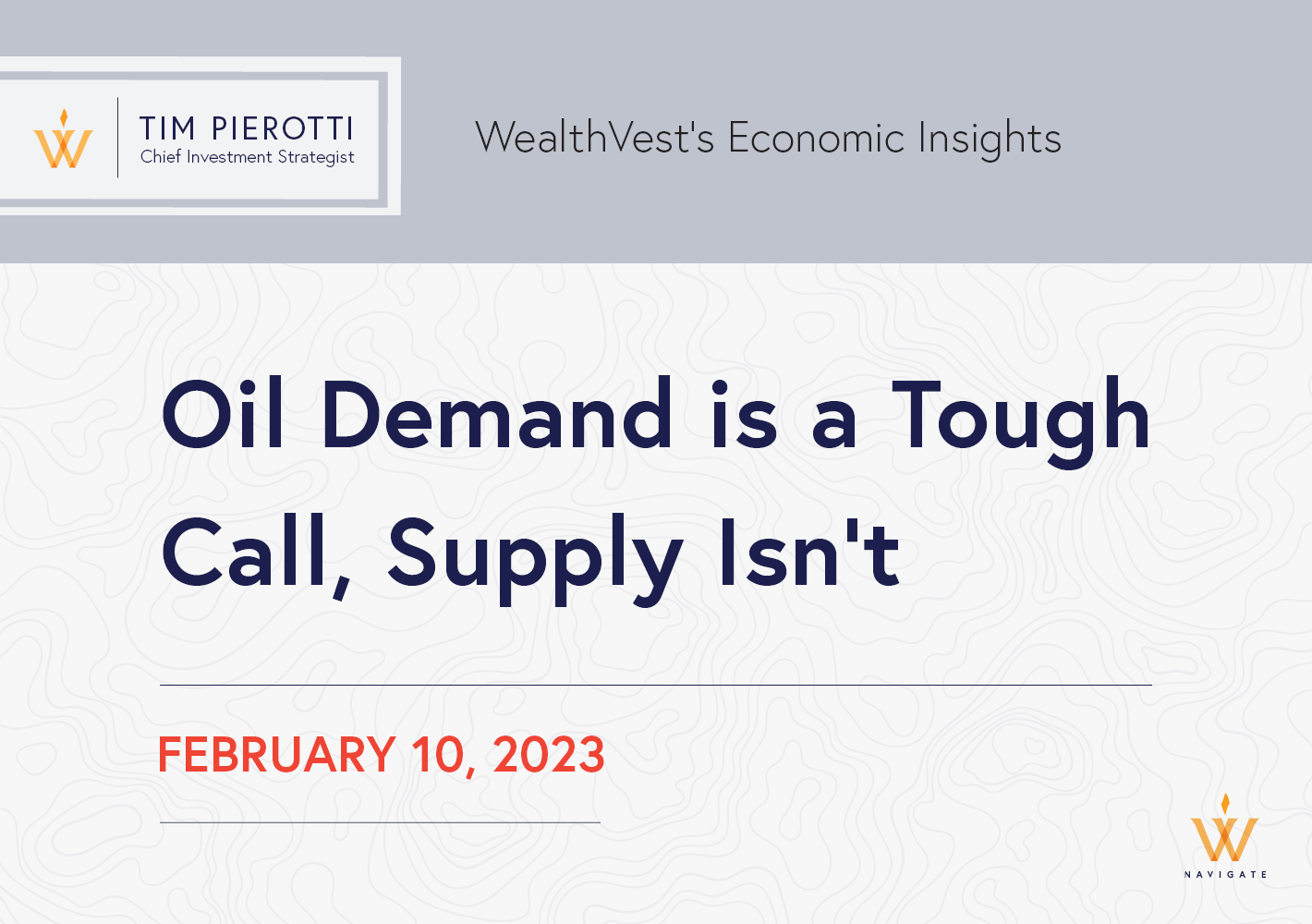Rethinking 60/40 Part 2: What can we learn about the years when stocks and bonds are both negative?
Rethinking 60/40: What can we learn about the years when stocks and bonds are both negative?
In our last blog post, I discussed the underlying reasons for today’s underperformance of 60/40 portfolios, but let’s look at how much of an anomaly today’s times are and where 2022 falls in history. Since 1928, we can glean the underlying reasons a 60/40 portfolio allocation became popular method for investors seeking reliable returns. The chart below shows historical corporate bond yield and the S&P 500® returns by year, demonstrating how often bonds and stocks remained positive. However, looking at the years in which equities and bonds are negative provides important context for the contemporary market environment.
WealthVest: The Weekly Bull & Bear - Interview with Torsten Slok
In this episode Drew and Tim interview Torsten Slok, Partner and Chief Economist at Apollo. They discuss what a nolanding economic scenario would look like, employment numbers, the struggle to get inflation down to 2%, the housing market and how demographics will affect future growth prospects.
Rethinking 60/40: Part 1-Why investors use 60/40 allocations?
Rethinking 60/40: Why have individuals used 60/40 Allocations for their Retirement Savings?
A portfolio invested in 60% stocks and 40% bonds, commonly known as a 60/40 portfolio, is where many portfolios start before adjusting to a diversified mix based on time horizon, risk tolerance and savings goals. The 60/40 portfolio mix is a tried and true portfolio allocation because it provides market gains during market rallies and fixed income reliability during economic slowdowns. This portfolio is most suitable when interest rates go down, as equities perform well. When interest rates rise, equity returns typically fall.
WealthVest Adds Doug Davidson to its Regional Consultant Wholesaling Team
WealthVest, a financial services marketing and wholesaling firm, has announced that Doug Davidson, a well-regarded financial planning professional, has joined their nationwide team as a Regional Consultant.
What Did We Learn This Week? (02/10/2023) - Oil Demand is a Tough Call, Supply Isn’t
“Capital efficiency” in the US energy sector has evolved to where the return of cash is coming at the expense of future refining capacity and upstream production.
60/40 Portfolios Have Their Worst Year Since 2008, Investors Turn to Alternatives
WealthVest, a financial services marketing and wholesaling firm, announced today the publication of a new research paper focused on the successes and failures of 60/40 portfolio allocations since 1928. The paper, titled “Rethinking 60/40: How Multi-Year Guaranteed Annuities Can Help”, examines alternative options to help protect against 60/40 negative years.
What Did We Learn This Week? (02/03/2023)–When the Pain Trade is Higher
…I was short a lot of the same stocks as other traders and we were all trying to reduce exposure and manage risk at the same time pushing our respective positions higher and exacerbating our losses. We were well into the start of the Great Financial Crisis bear market, but in May, due to some piece of better economic data, the counter-trend rally was violent and I wasn’t handling it particularly well…
What Did We Learn This Week? (01/19/2023)–Soft Landing or Imminent Peril
This week Tim explores if the Fed’s latest moves have set our economy up for a soft landing or if all of the other factors pressuring today’s economy are too much to overcome a recession.
What Did We Learn This Week? (12/30/2022)–The Energy Transition Fantasy
Energy Transition is a Fantasy
Facebook for Financial Professionals: A Guide to Growing Your Practice Pt. 2
In our second installment of our Facebook for Financial Professionals series, we dive deeper into Facebook’s marketing tools, specifically paid advertising and analytics, and how they can help you generate more visibility for your practice.
What Did We Learn This Week? (12/16/2022)–The Fed, Oaktree, Fusion
This week, Tim discusses Jerome Powell’s comments, Oaktree’s Howard Marks making the case on how today’s economy is fundamentally different than the last four decades, and the holy grail of nuclear fusion someday becoming a reality.
WealthVest Adds Nick Buonamico to its Wholesaling Team
WealthVest, a financial services marketing and wholesaling firm, announced today that Nick Buonamico, a well-regarded financial planning professional, has joined their nationwide team as a regional consultant.
What Did We Learn This Week? (12/06/2022)–Brainard
The Fed just told us that we are now in a new secular inflation regime and the market didn’t pay attention
Facebook for Financial Professionals: A Guide to Growing Your Practice Pt. 1
As a financial professional, there’s a lot you can do to build and/or enhance your Facebook presence and attract new clients to your practice. In part 1 of our blog, we outline how to optimize your page and post with intent to create more visibility for your practice.
WealthVest Employees Work To Combat Food Insecurity
During their annual employee food drive this November, WealthVest’s employees collected and donated more than 1,800 pounds of food to the Gallatin Valley Food Bank, nearly 200 pounds more than in 2021.
What Did We Learn This Week? (11/29/2022)–Finding the Positives
This week, Tim looks at the key question every investor and fiduciary may ask themselves before making a market decision, where could I be wrong?
November Update with Jonathan Golub and Tim Pierotti
In this video Tim covers the factors driving the secular energy inflation issue. Underinvestment, industry changes, geopolitical issues, and demand all contribute to high oil prices long term.
What Did We Learn This Week? (11/11/2022)–Mild Stagflation
This week, Tim discusses the recent CPI report and how stagflation may come to more of a forefront in the coming months and how mild stagflation will become the new reality.
Tim Pierotti—The End of the Great Moderation
In this video Tim Pierotti looks at the four long term factors that contributed to the Great Moderation and how they have come to an end and how financial professionals can plan moving forward.
What Did We Learn This Week? (11/4/2022)–Elusive Pivot
This week Tim discusses the Fed decision to raise the target rate 75 basis points and the long-term implications of today’s inflationary cycle.




















